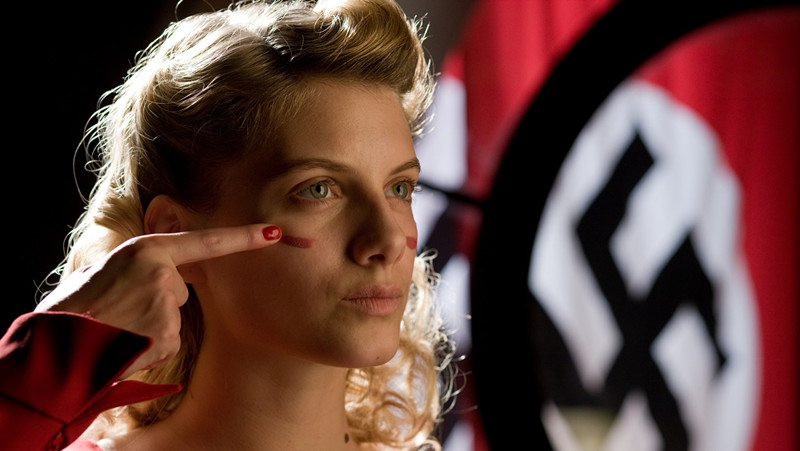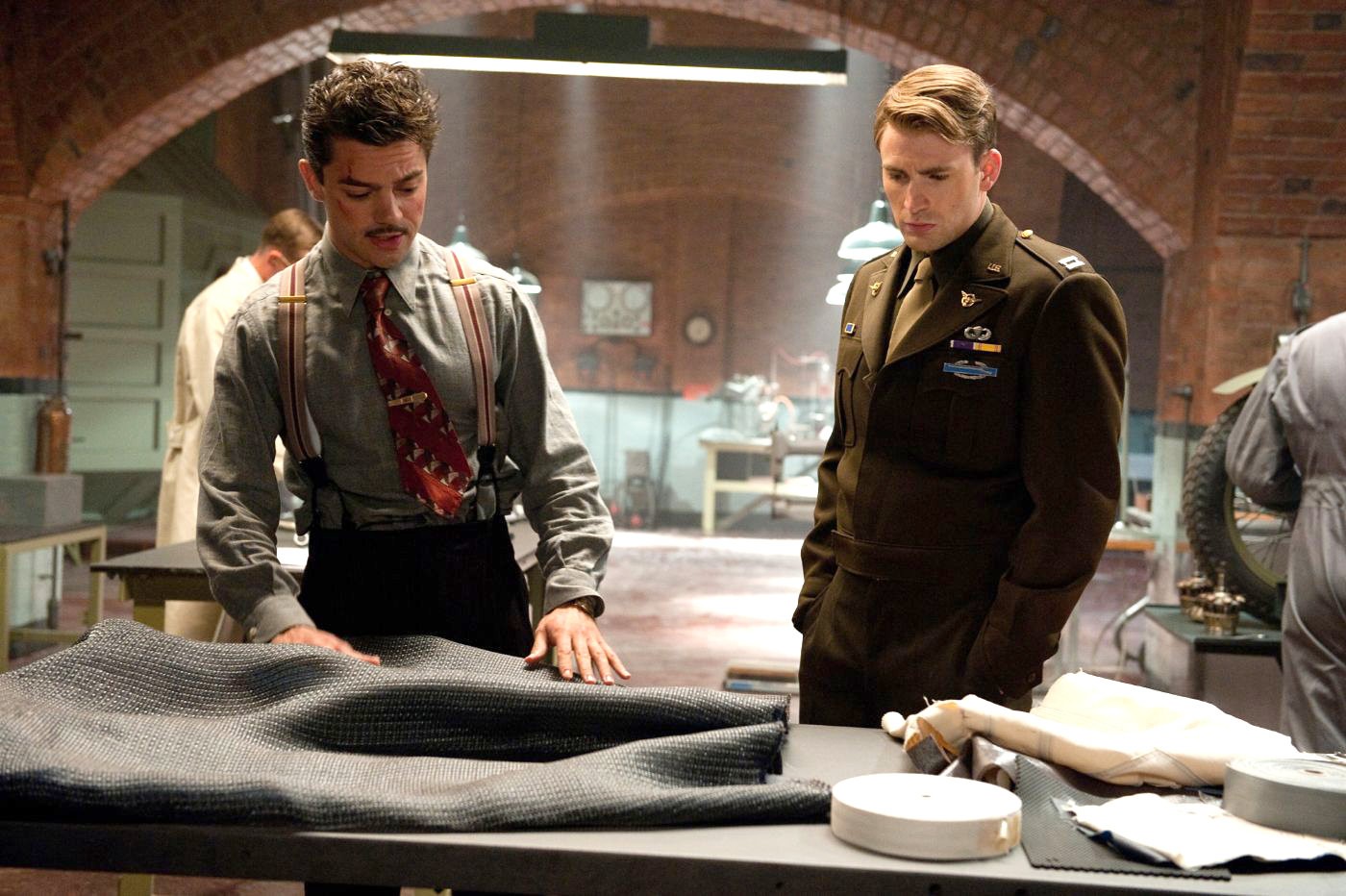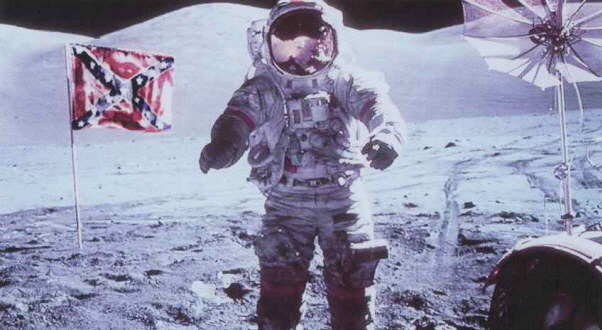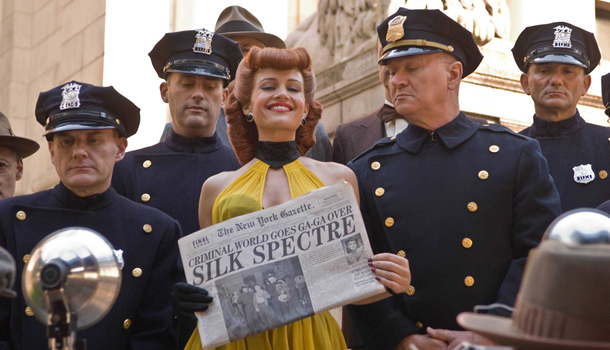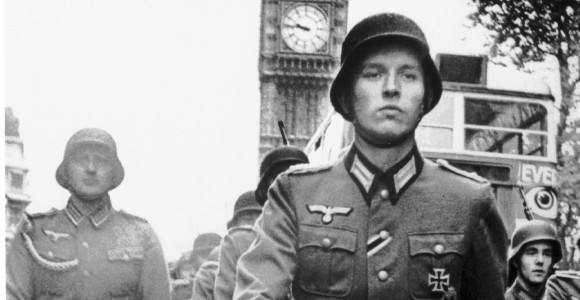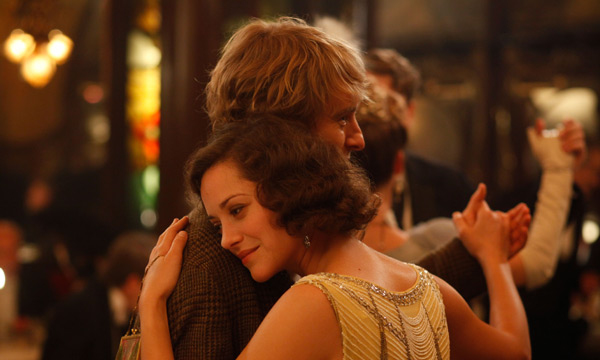Many films based on true stories often alter small details of fact, in order to make for a better cinematic interpretation. Lesser common, however, are films that deliberately change major historical events of which the public knows well.
Instead of slightly changing the history to meet a more compelling story, these bold movies use the significant departure from well known reality of the past to explore intriguing ideas and create a bewildering atmosphere for the viewer, making them question what they know and what they see.
While all films on this list and in this specific genre are of course fictional, they contain real events and settings familiar to most people. This intermixing of fact and fiction blurs the line for the viewer between fantasy and reality, creating an effect similar to magic realism. Alternate history films are not restricted to any style of genre of film, with some being science-fiction, some magical and many others being realistic but feature a changed timeline from actual history.
The films on this list that follows each approach the idea of alternate history differently, with some focusing on a large change that affects the world and some addressing the changes in various small ways, but all provide a fascinating insight into how we view history and its impact on our culture.
10. Captain America: The First Avenger (Joe Johnston, 2011)
An introductory film to the Captain America character in order to make The Avengers, this film follows the origin story of Steve Rogers during World War II. Chris Evans stars in the leading role as a weak but ambitious young man who is transformed into a super-soldier by a special branch of the military.
He and his friend Bucky Barnes are assigned to a special task force to retrieve a mystical object called the “tesseract” from Nazi scientists led by Johann Schmidt (AKA Red Skull) who is utilizing its powers for weaponry against the Allied forces. During an assault on their headquarters where Captain America recovered the tesseract, his plane goes down in the arctic where is frozen until his uncovering in the 21st century.
This film is the first of several superhero movies to appear on this list and as well as the first of many movies in which the history of World War II has been altered. In addition to the inclusion of superheroes and powers, the other main alteration comes from the fictional Nazi organization Hydra that developed new technologies. Although the Nazis were famous for their controversial but undisputably advanced research, nothing real came close to the levels of innovation shown in the film.
The mixing of this fiction into the history of the war and America serves to create the sense of national pride surrounding Captain America, which becomes important when the story shifts to modern times in the sequel as well as the Avengers films. Fun exciting, but a bit shallow, Captain America: The First Avenger is a capable introduction to both the character and the history of the Marvel universe.
9. The Confederate States of America (Kevin Willmott, 2004)
This intriguing film is a mockumentary in the style of a BBC documentary of America, only if the Confederates had won the Civil War and slavery had never been abolished. The film follows the fictional events chronologically, starting with the Union’s loss in the Civil War (Renamed the “War of Northern Aggression”), after which Abraham Lincoln was banished to Canada and other abolitionists were executed.
The country changed their flag from stars and stripes to the Confederate flag and the national anthem was changed to Dixie. America then became highly imperialistic, claiming nearly all of the Western Hemisphere and enslaving other races as well. They still fight Japan in World War II but are friendly with the Nazis and engage in a Cold War with Canada, which has become the pop culture center of the world.
The Confederate States of America is obviously satirical but nonetheless much of the content is disturbing. The exaggerated racism and white male supremacy is both a joke and a real exploration of the still present condition of racial tensions in America. It also lampoons several other moments in American history from Pearl Harbor to the assassination of JFK.
Many have found the film to be quite irreverent and offensive but it is only through these types of jokes that this story could be told entertainingly. Although the production of the film leaves something to be desired, The Confederate States of America is a devilishly clever entry into the mockumentary genre.
8. Watchmen (Zack Snyder, 2009)
Based on Alan Moore’s landmark graphic novel of the same name, this ambitious and visually stunning superhero film brings a welcome grittiness to the typically more light-hearted genre. Set in an alternative 1985 with the Cold War reaching closer to a nuclear showdown, the appearance of superheroes since a surge of popularity in the 1940s has changed many aspects of America and world politics.
The superheroes, including the blue, god-like hero Dr. Manhattan, helped the U.S. win the Vietnam War and caused Nixon to be reelected. After a surge in popularity some heros start working for the government while others remain vigilantes. In 1985, several past heros are being killed and the vigilante known as Rorschach pieces together the mystery while the Cold War tensions increase and Dr. Manhattan faces worldwide scorn for his superpowers.
Although the universe is fictional, the themes set forth in the film through the superheros act as exaggerated events of what the world as really feeling in that time period. The complex relations between heroes and society also reflect McCarthyist themes of fear of outsiders. Snyder’s interpretation of the graphic novel has been very polarizing for viewers.
It is both criticized and heralded for its extremely loyal adaptation, often recreating scenes perfectly from the comic, which some said lacked vision. With striking cinematography, social relatability and an excellent plot, Watchmen is a unique and welcome addition to the body of superhero film.
7. It Happened Here (Kevin Brownlow & Andrew Mollo, 1964)
Taking place during World War II where Germany has successfully pushed through Western Europe and taken over Britain, but the German troops are pulled back to Russia leaving British fascists in charge. The film follows an Irish nurse Pauline who, despite having many friends in the resistance movements becomes enlisted by the Fascists to help their cause. As she collaborates with the Nazis, slowly Pauline become indoctrinated into the Fascist system.
When she meets up with some past friends, however, she is disillusioned and joins a resistance movement in Britain to drive out the fascists. Once the movements starts it soon grows ferocious and the actions of the resistance become similar to those of the Nazis.
The purpose of the alternative history in this film, while central to the plot, is not entirely clear. At first it seems that the filmmakers are using to film to show the evil and charisma of the Fascist party, but as the story progresses the themes because less clear. When the other forces in the war are portrayed equally as savage, it appears that war itself it the antagonist in the story.
The film was eight years in the making before it was completed and remains one of the longest productions in film history. A daring film yielding polarizing results, It Happened Here is a fascinating war film about one of the most important events in history.
6. Midnight in Paris (Woody Allen, 2011)
One of Woody Allen’s greatest films in recent years, this fantasy time travel movie stars Owen Wilson as Gil, a screenwriter, who travels to Paris with his fiance, played by Rachel McAdams, and her wealthy parents. One night when he is taking a walk, looking for inspiration, he is picked up by a mysterious old car and taken to a lavish party.
Soon, GIl realizes that is no ordinary party with the other guests including Cole Porter and F.Scott Fitzgerald and that he has somehow been transported to the 1920s. He talks to Fitzgerald who introduces him to other expatriates like Ernest Hemingway, Gertrude Stein and Pablo Picasso.
When Gil leaves and finds himself back in the present, his fiance does not believe his story and is too impatient to wait for the “car to the past” again. As Gil keeps going back to the past, the differences between him and his fiancee grow more prominent and their relationship disintegrates.
Like many movies that feature time travel, when someone travel back in time they influence the places that they visit heavily. While in this film the focus is more on Gil’s experience and realization of the importance of both nostalgia and modern life, his presence does not pass unnoticed.
His relations with the expatriates does not alter the history that we know today, but his role in the development of much of their work is fictional, such as Gil giving Luis Bunuel the idea for the film The Exterminating Angel. His physical interactions give the film a powerful feeling of the power of the past on the future and the allure of idealized times. While it may not be the most powerful or important of Allen’s filmography, Midnight in Paris is an enchanting piece of cinema.
